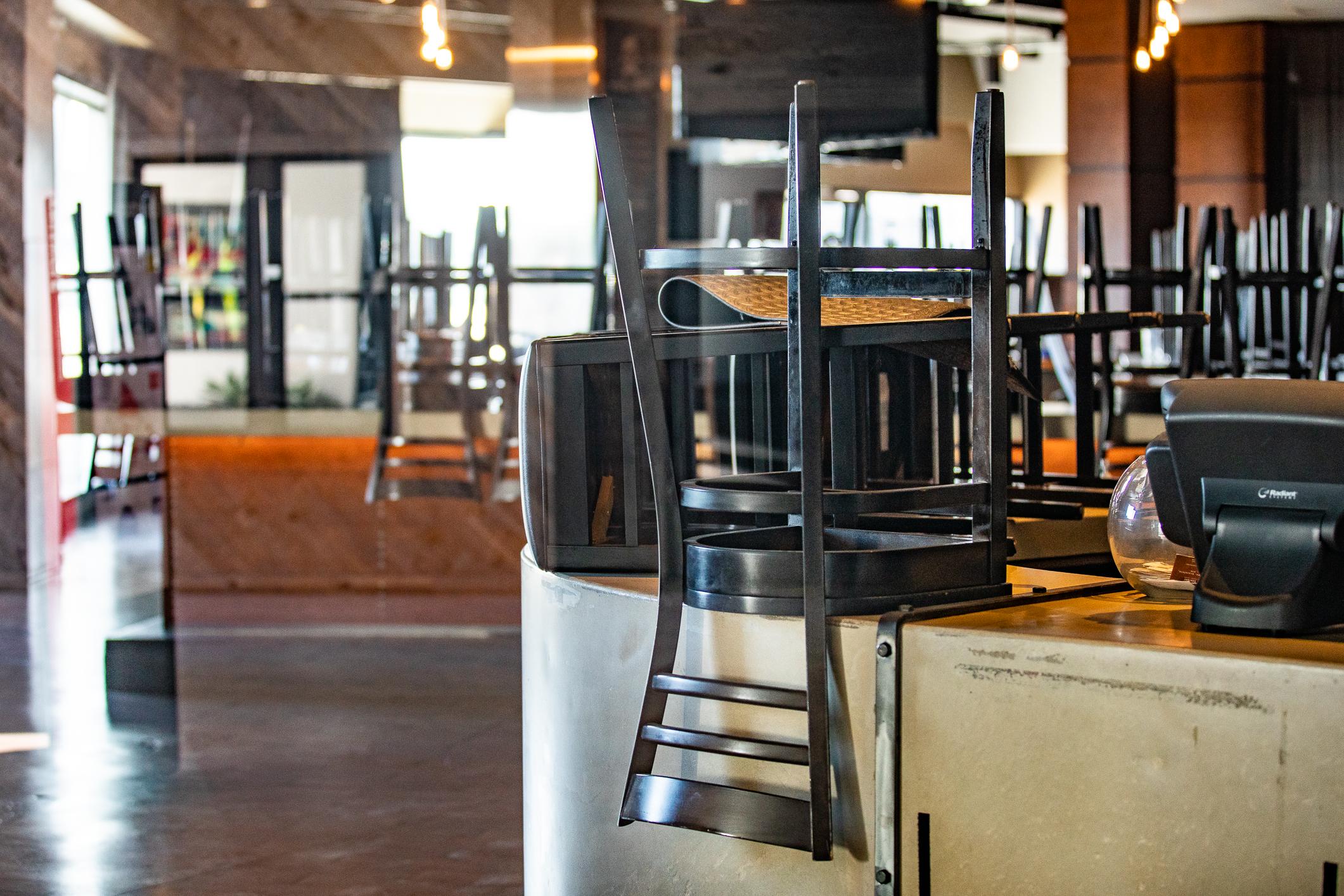California small businesses are being shaken down by frivolous lawsuits, with some owners fleeing the state or foregoing their dreams because of the state’s countless laws and regulations, according to business owners and citizens advocating for reform.
Last year, California was ranked the third worst “Judicial Hellhole,” in the country, according to a December 2022 report from the American Tort Reform Foundation, a Washington D.C. nonprofit dedicated to reforming the civil justice system.
California small business owners are plagued with civil lawsuits, according to the foundation, and the state is home to more than half of the nation’s so-called accessibility lawsuits, such as noncompliance with the Americans with Disabilities Act (ADA).
As a result, some are forced to close shop and move out of state or lose their business.
“A lot of Vietnamese immigrants, a lot of Latino immigrants come here with an entrepreneurial spirit … They put all of their money up to open up that taco shop, to open up that boqueria, they do it because they care about the product they’re selling and then they lose it all to one frivolous lawsuit,” Victor Gomez, the executive director of the organization Citizens Against Lawsuit Abuse, told EpochTV’s “California Insider” in a recent episode.
The movement has been advocating for change in California, where 750,000 employees lose their jobs each year due to owners having to pay litigation costs, according to the same report by the foundation.
Mr. Gomez said with accessibility lawsuits, specifically for those laws catering to the disabled, oftentimes attorneys find loopholes to sue a business for minor construction mistakes such as building a washroom sink at the wrong height.
While previously working for the City of San Jose as chief of staff for two former city councilors, a small Vietnamese-owned coffee shop Mr. Gomez patronized was hit with an ADA lawsuit that ended up putting them out of business.
“The ADA parking stall in front of their business, it was the right size, it had the right incline on the ramp … but oddly enough it was the wrong color blue. They got a $4,000 lawsuit for that,” he said.

Victor Gomez, the executive director of the grassroots movement Citizens Against Lawsuit Abuse, on EpochTV’s “California Insider." (Taras Dubenets/The Epoch Times)
He said ADA infractions are charged separately, with other examples such as a urinal or sink too low or too high, or the toilet paper holder incorrectly placed.
“The ADA law applies nationwide, but in California, they passed laws that actually say you have to pay $4,000 for each infraction,” he said.
Mr. Gomez said advocates against lawsuit abuses are most concerned that such suits never lead to fixing the issue, and instead are just a money scheme for California attorneys.
“We’re really disturbed because none of those lawsuits or actions actually equate to fixing the problem. So, these folks that are filing lawsuits are not saying, hey, can you fix this problem? Can you fix that ramp? Can you fix that sink? No, all they say is, give me money, we don’t really care if you fix that issue,” he told California Insider’s host Siyamak Khorrami during the 30-minute episode.
Another type of prevalent no-injury lawsuit in California falls under the state’s Private Attorneys General Act—also known as PAGA—which some call the “Sue Your Boss” law, according to the foundation.
Under PAGA, employees can sue over labor code violations such as a misprint of an employee’s name on their pay stub or the company failing to print its address on a pay stub, even if it shows on the paycheck itself.
Mr. Gomez said PAGA lawsuits are those he sees often clogging up California’s court system, which had the original intent of protecting workers. But now, he said, they are a money-making scheme for greedy attorneys.
“The intent behind PAGA was around wage theft and people having their time not paid … Unfortunately, trial attorneys really started salivating over PAGA and said, wait there’s an opportunity here for us to make a lot of money and take advantage of it,” he said.
One major example is a PAGA lawsuit filed by an Uber Rides driver in 2019 against the company, over what his attorneys said was a misclassification of him and other drivers as independent contractors, among other claims.

An Uber logo is shown on a rideshare vehicle in Los Angeles on Aug. 20, 2020. (Mike Blake/Reuters)
The class action lawsuit settled for $8.4 million with 75 percent going to the state’s Labor and Workforce Development Agency and 25 percent to the employees and for attorney fees.
The distribution of such a settlement is mandated under California law after the passing of the Private Attorneys General Act in 2004, which says the agency will use such funds for enforcing labor laws, educating employers and employees about their rights and responsibilities, and for administrative needs.
“The state right off the bat on PAGA lawsuits gets 75 percent of the lawsuit. So essentially, they walk away with in this case, they walk away with about $6 million,” Mr. Gomez said regarding the Uber case.
“The lawyers make all the money really. And when it comes to PAGA specifically, the state of California, yes, they make 75 percent of the settlement,” he said.
Other examples that could lead to PAGA lawsuits include paid time off hours not appearing on a pay stub, not enough chairs for employees to use during breaks, abbreviating the name of one’s company on a pay stub, and other small matters, Mr. Gomez said.

A grocery store worker taking a break in Costa Mesa, Calif. on March 1, 2021. (John Fredricks/The Epoch Times)
“In many cases, as a small business owner, you’re busy working, taking care of your customers. But then here you are getting sued because an employee said, well, there were five other people in front of me, in front of the time clock, it took me six minutes to get to the time clock. So now I’m going to sue you for those six minutes that I lost,” he said, with many PAGA cases usually settling for about $350,000.
He said while most cases do settle outside of court, those that do make it to court cost Californians what he and others call a “tort tax,” which is not a direct tax, per se, but a per capita estimate of losses in economic output.
According to a study by the Perryman Group, a Texas-based economic and financial analysis firm, such losses for tax-paying Californians amount to $1,900 a year, the third highest in the nation trailing only Massachusetts and the District of Columbia.
But reform could be coming soon, Mr. Gomez said.
Currently making its way through the California state Legislature, SB 585, which passed the Senate and is now under consideration by the Assembly’s Judiciary Committee, would give businesses with 50 or fewer employees 120 days to fix a construction-related ADA problem, to avoid a fine and a lawsuit.
“What we’re trying to do here is salvage the small to medium-sized businesses and prevent them from getting attacked by these predatory attorneys and say, hey, give us 120 days to fix it,” Mr. Gomez said.
On the PAGA front, a ballot initiative by the California Chamber of Commerce is set for 2024 that could potentially remove trial attorneys from the equation in such lawsuits and leave matters concerning wage and hour claims back into the hands of California’s independent regulator.
“We figure that if these trial attorneys are out of the equation, you can actually have a civil conversation when these claims are made,” Mr. Gomez said.












